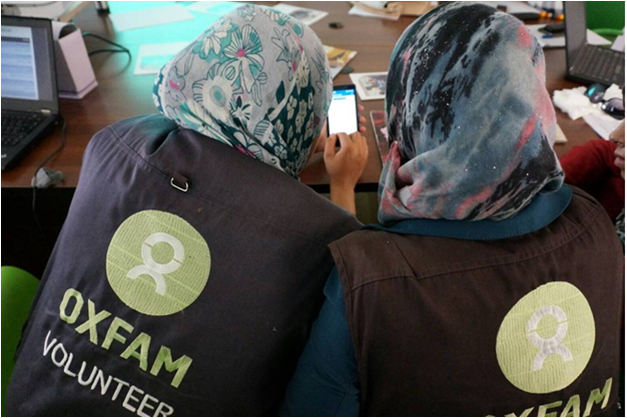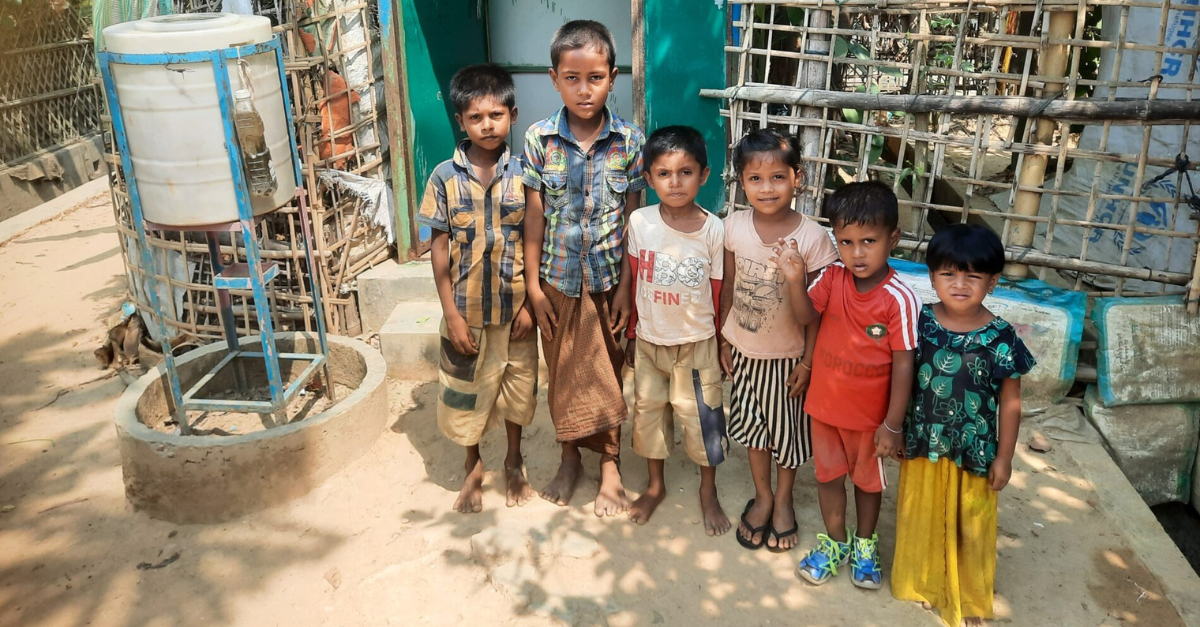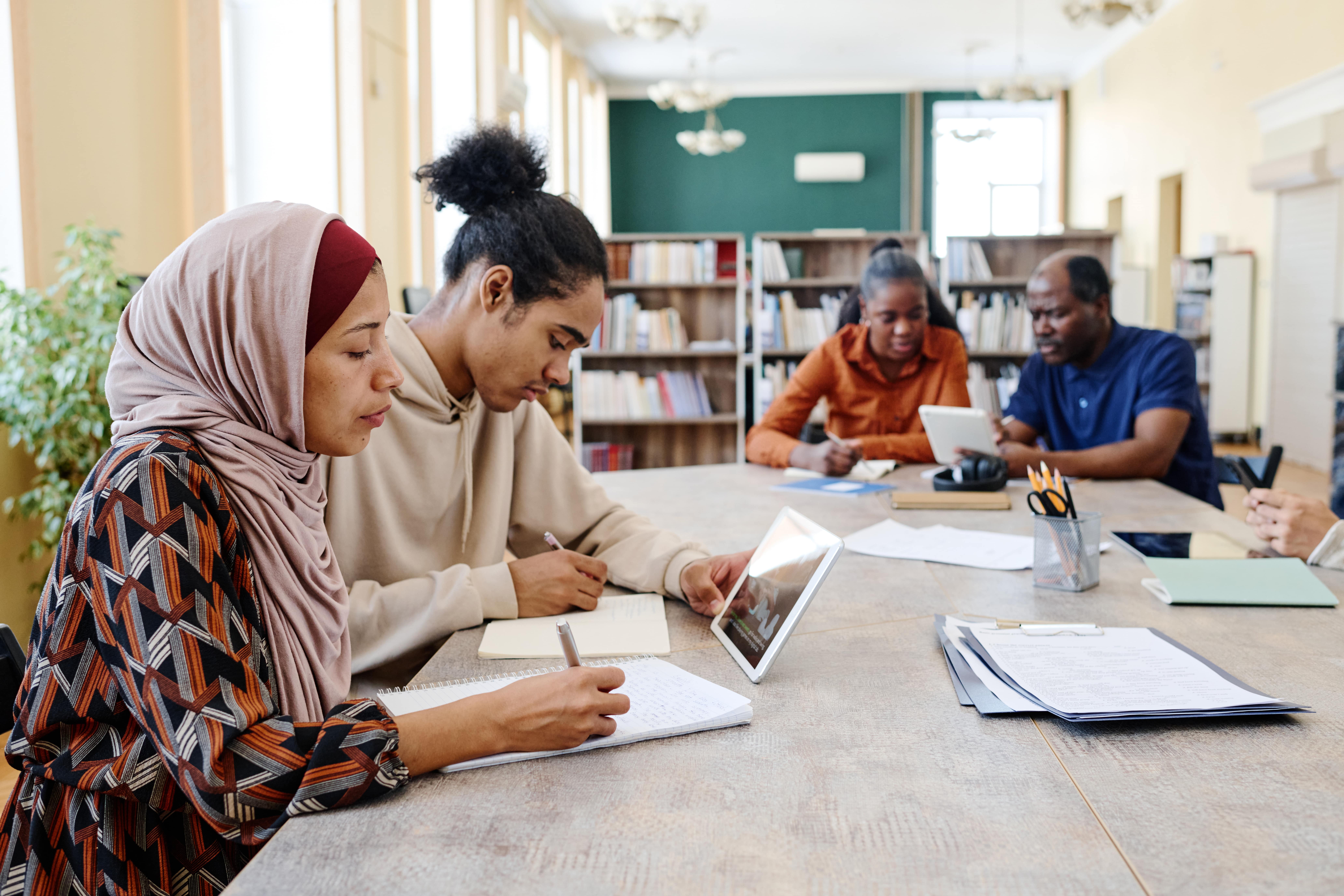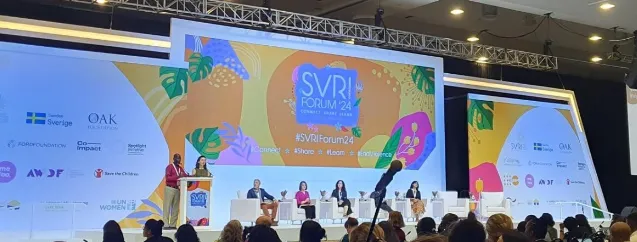Understanding Community Needs: taking a human-centred design approach to reporting misconduct

Programme Manager, Emily Tomkys Valteri builds on the previous blog, Safeguarding: Communities trust in our ability to listen, react and respond is key.
Together with Sonder Collective, Oxfam is working on a research initiative dedicated to better understanding misconduct reporting. This research will build capacity to incorporate human-centred design principles into this process. It will seek to map user journeys of community members and field staff so that we can better identify gaps and needs relating to perceptions of and experiences with misconduct reporting.
A key driver for us with the research is that as a sector, we do not currently hear much in terms of misconduct reporting (sexual harassment, abuse, fraud) directly from the people we work with in communities. There isn’t a system that refers feedback (misconduct or programmatic) effectively. As a sector we lack an integrated process for coordination between key actors working alongside each other in the same location. Standard programme feedback can be blurred with misconduct reporting which makes it challenging to provide safe data flows for sensitive content.
From the onset, Oxfam and Sonder have been co-designing and creating together. This began with an intent workshop, where safeguarding, anti-corruption, accountability, information communication technology in programme and protection staff came together.
We identified the following priorities:
- Building trust: by identifying existing routes or trusted reporting lines.
- Flipping power: by creating a safe and enabling environment to really listen, before acting. Priority focus should be on real consent, confidentiality and community understanding. Our aim is for people to know what will happen to their data.
- Closing the feedback loop: by being in communication with communities not only after matters are addressed but throughout the process when they are being managed. This also includes referrals and reports beyond Oxfam, as we would only be dealing with half the problem if we only looked at Oxfam.
- Prioritising confidentiality: and ensuring that all data is stored and managed responsibly.
- Understanding the context: by gaining deep insight into norms and customs around what should be reported, by whom and why.
- Safety of community members: and the ability to maintain it. This means that we understand the specific risks that may come with reporting across all contexts.
During the workshop, we narrowed down and collectively specified the two main groups of individuals that we will engage with during this research. This decision was informed by conversations around understanding the various pathways to speaking up about misconduct.
We decided to focus our research on community members and general field staff. Community members are those who reside in the local communities and engage with Oxfam. General field staff are those who have the most contact with community members, both Oxfam and partners. We chose these groups because they will provide us with the deepest insights around the preferences and needs related to misconduct reporting.
We will focus this research to understand the barriers to speaking up for community members, and the barriers to reporting for field staff. Specifically, this work’s scope will focus on experiences of misconduct. This includes sexual harassment, sexual exploitation/abuse, fraud and corruption.
We will remain open and listen without prejudice to enable understanding of any reporting channels that may emerge over the course of research. We recognise that people won’t make distinctions between feedback channels versus misconduct channels. It is down to us, as a sector, to enable reporting of all kinds and provide specialist safe data flows for sensitive content.
We hope that this research will contribute to the sector’s improvements in managing misconduct reporting more effectively in the contexts in which we and other INGOs work internationally. Our ideal vision for the future would be that community members know how to report misconduct (in)to systems which they trust and find easy to access and use. The systems themselves need to be survivor-centred, designed locally with local GBV/safeguarding experts.
This research is planned to take place in three countries (Myanmar, Iraq and Democratic Republic of Congo) over the next six months.
Photo Credit: Oxfam GB
Stay updated
Sign up for our newsletter to receive regular updates on resources, news, and insights like this. Don’t miss out on important information that can help you stay informed and engaged.
Related articles



Explore Elrha
Learn more about our mission, the organisations we support, and the resources we provide to drive research and innovation in humanitarian response.